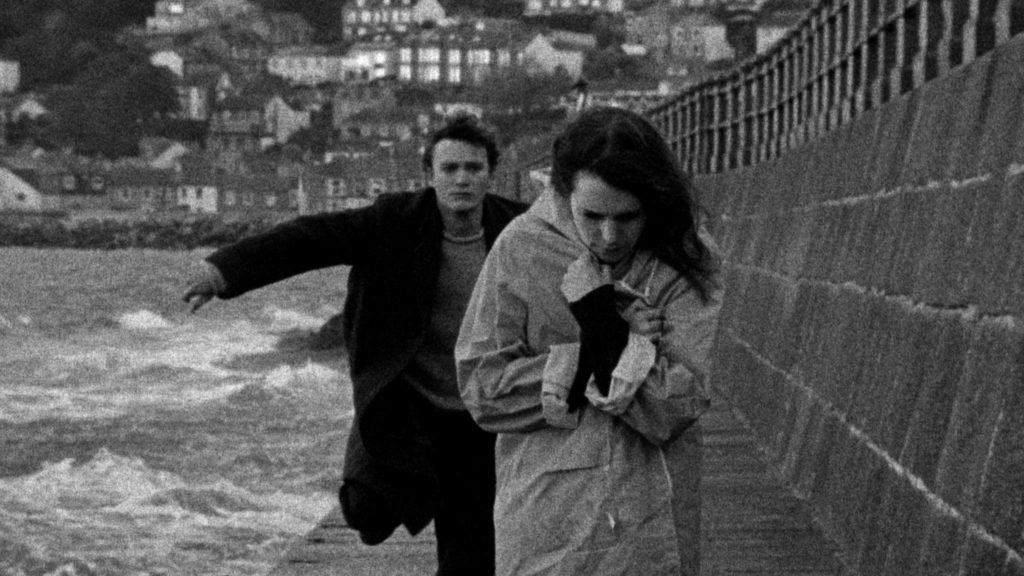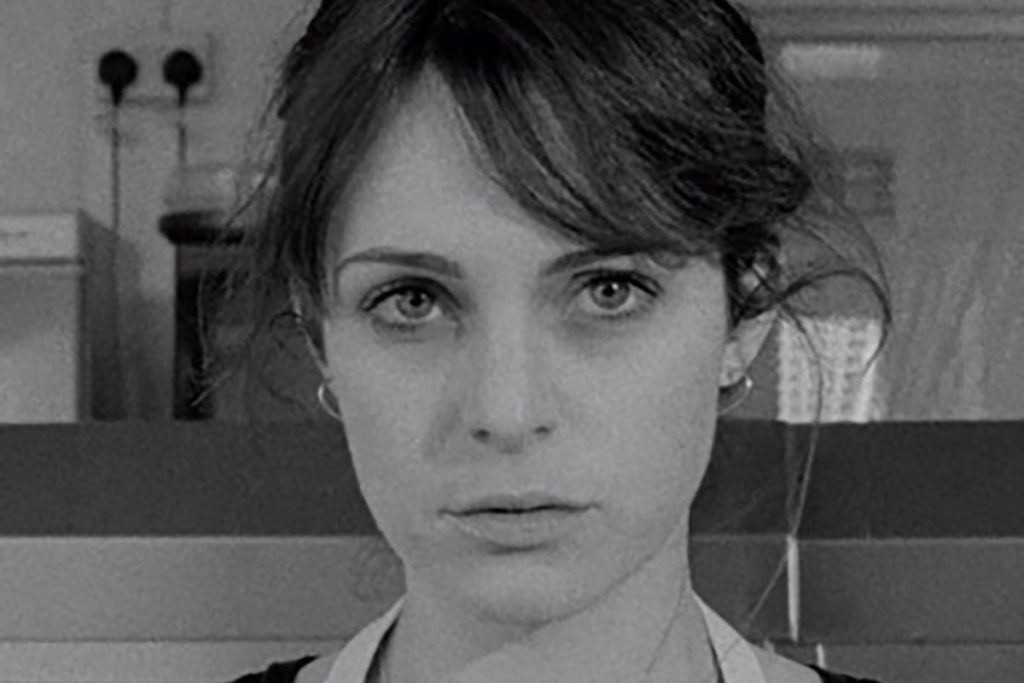Review: Hard, Cracked the Wind (2019)

“Hard, Cracked the Wind” reads the single line of poetry written on a clean white sheet of paper. “Finish it,” she hisses into his ear, like the chop taking over the bay, waves, like the echoes of dead souls, raging.
At a local pub there is an open mic for Cornish language poetry. A young woman considers taking the stage but changes her mind and hooks up with a man whose confidence she wishes she possessed. After spending the night together, his arrogance irritates her and she takes twenty quid from his wallet – a crisp bill, plastered with the smug face of the Queen of England. This money, like her body before it, will be exchanged for the artistic freedom and confidence she so desires; a woman’s body can only be, and yet are so often is separated from her mind by the forces of capital. Searching for her soul, she encounters something soulful: a writing case, embossed with the letters, “E.G.S.” But the case, or perhaps it is each unwitting artist that chooses this cursed tool, is haunted by the unfinished lyricism of its past owners.
“Hard, Cracked the Wind” reads the single line of poetry written on a clean white sheet of paper. “Finish it,” she hisses into his ear, like the chop taking over the bay, waves, like the echoes of dead souls, raging.
Haunted by the words, and the voice of an artist, E.G.S. yearns and yields. But she is a premonition, not a ghost, and becomes the spectre of capitalism and the embodiment of neoliberalism; an individual that must do, lest they cease to be.
Writer Adrian Bailey and filmmaker Mark Jenkin could not have known that their film, made in 2019, would speak so acutely to the current crisis. But such is the great betrayal of writing in genre: affect is subject to extraneous conditions and, in this instance, horror exists in direct relation to heady contemporary fears. The story is about a physical object and how each subsequent owner imbues it with immediate and intimate meaning: it’s embossed letters “E.G.S.” interpreted as the initials of each person who, mysteriously drawn to it, picks it up. Once they have held it, they are under its spell, and a past poet, an artistic soul lost before its time, implores them to finish the poem, to fill the empty pages with words and to fulfil the prophecy of art as labour; the object, the act of consumerism requires their soul. Once they complete the poem, they enter a sort of fever-dream and even cough their way into the afterlife. How long can a virus live on an item? Scientists are still trying to determine.

Our female protagonist – Esme Gemma Stafford (Tamla Kari) – is haunted but the film itself is a premonition. The object, sensory, like both memory and disease, is a traceable artefact that infects its unwitting victims. It does not discriminate according to age or gender and, given the chance, probably rages across various other binary boundaries, too. Each person who encounters it is part of an unbreakable chain (capitalism) and one that exists as a sort of feedback loop (neoliberalism), yet is damned to consume itself like Ouroboros, transmigrating souls for eternity; “I knew thou wouldst return to me,” so the poem goes, reminding us that everything powerful circulates – be it capital, virus, or injustice. But what strikes me most is how the owner of the item could survive the vicious spectre, if only they didn’t finish the poem. And here lies the paradox: to work, toil, labour, is to do, but the artists need first to be. Art, when executed at the behest of another, enters into a system of exploitation and one that could even kill the artist, but, if they are not ‘productive’, how then can they claim to be (an artist)? Covid-19 poses this paradox in our societies: how can we be, within the model of late capitalism, if we cannot do? Self-isolating has become necessary for survival and yet it closes down the economic system upon which we have all become unwittingly dependent. Art, labour, object.
“Hard, Cracked the Wind” reads the single line of poetry written on a clean white sheet of paper. “Finish it,” the audience wills the filmmaker.
Hard, Cracked the Wind finishes with a shot of the Mermaid II setting out to sea on one of its fishing trips or wildlife cruises. Our infected writers, ghosts maybe, deadbeats for sure, are ready to be whisked away, for inspiration perhaps after having stolen the words of others – in English, the language of thieves, Cornish be damned. Nervous about performing at a Cornish Language Poetry Night that is “open to all”, Esme traded in her history, her identity, her birth right, perhaps, for the words of empire, words that offer no reward other than death. This is what faces Cornwall as the lockdown eases ahead of time in the UK, as Boris Johnson repeatedly fails the nation, as the English prepare themselves for a summer of tourism in the south. Spending their pounds, on cruises and eating fish and chips by the shore, their cry will not be, “Hard, Cracked the Wind” but “Social distancing be damned”, with every pound sterling that bears the face and corona(virus)/crown of the Queen of England.
Country: UK
Language: English, Cornish
Runtime: 17′
Horror
Directed by: Mark Jenkin
Written by: Adrian Bailey
Producers: Kate Byers, Denzil Monk, Linn Waite
Executive Producers: Kingsley Marshall, Chris Morris
Cinematographer: Will Pugh
Music: Kingsley Marshall
Editor: Mark Jenkin
Production Design: Mae Voogd
Cast: Edward Franklin, Tamla Kari, Ben Norris
















